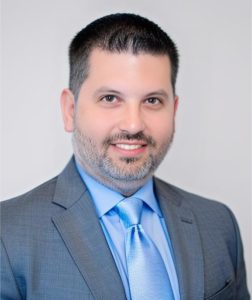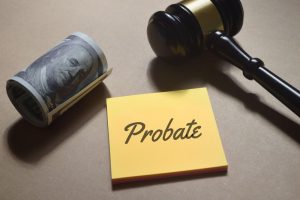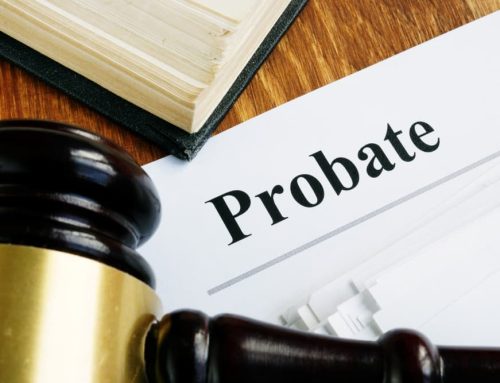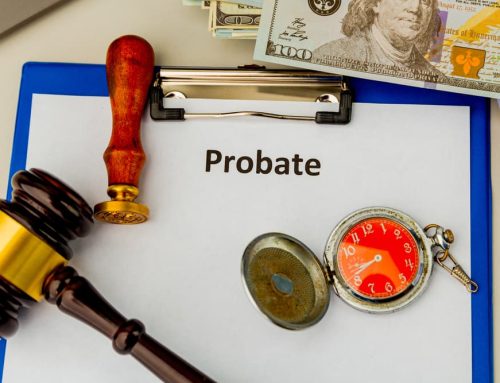How Are Debts Handled in Probate in Florida?
How Are Debts Handled in Probate in Florida?

Many things happen as part of the probate process in Florida. One key aspect of the probate process is that creditors file claims against the estate to be paid back the money that they are owed. This is a prerequisite before the estate can be settled, and the property distributed to the heirs. There may be technical issues involved in the payment of claims, and an experienced probate attorney can help you address any challenges that may arise.
Key Takeaways
- Probate is the last chance for creditors to be paid out from the estate property before it is settled
- Creditors must receive notice of the probate proceedings, so they can file claims to be paid what they are owed
- There is a procedure that must be followed for claims to be filed and paid
- You should get legal help from an experienced probate attorney who can guide you through the process and handle all of the necessary details
What Is Probate in Florida?
If you’ve ever wondered what is probate, it’s the court-supervised legal process used to settle a deceased person’s estate. When someone passes away, their assets, such as property, bank accounts, and personal belongings, must be gathered, debts and taxes paid, and the remaining property distributed to heirs or beneficiaries. Florida law ensures this process is carried out fairly and in accordance with established rules.
There are two primary types of probate in Florida: formal administration and summary administration. Formal administration is the standard process for larger or more complex estates, involving court filings, a personal representative (executor), and oversight of the estate’s full administration. Summary administration is a simplified process available for smaller estates valued under $75,000 or when the decedent has been deceased for more than two years.
What Debts Are Paid Back in Probate?
In probate, one of the first responsibilities of the personal representative (executor) is to ensure the deceased person’s valid debts are paid before distributing assets to heirs or beneficiaries. Not all debts are treated equally. Florida law (and most states) sets out an order of priority for repayment. Generally, the following debts are addressed in probate:
- Administrative costs and expenses: Fees for the personal representative, attorneys, accountants, and court costs.
- Funeral and burial expenses: Reasonable funeral costs are usually paid early in the process.
- Taxes: Federal income taxes, estate taxes (if applicable), and any state taxes owed.
- Secured debts: Mortgages, car loans, or other debts tied to collateral. The lender may claim the property or require payment.
- Medical expenses: Especially those related to the last 60 days of illness.
- Unsecured debts: Credit cards, personal loans, and other outstanding bills.
Some debts, like federal tax liens or child support arrears, may take higher priority regardless of state law. Importantly, heirs do not personally inherit debts unless they co-signed or are otherwise legally responsible. Debts are paid from the estate, and if assets are insufficient, some creditors may go unpaid. Families often explore estate planning strategies to avoid probate in Florida and reduce the burden of debts and court proceedings on heirs.
How Creditors Are Notified of Debts in Florida
In Florida, notifying creditors is an important step in the probate process. Once the personal representative (executor) is appointed, they must identify and notify potential creditors of the decedent’s death. For formal probate, this typically involves publishing a notice to creditors in a local newspaper and sending direct written notices to known creditors. The notice provides a deadline, usually three months from the date of first publication or 30 days from receiving a direct notice, for creditors to submit claims against the estate.
Selecting the right individual for this role is crucial. When choosing a personal representative, it’s important to consider their ability to manage deadlines, handle creditor communications, and keep accurate financial records.
Creditors who fail to file a claim within the timeframe may lose the right to collect from the estate. This process ensures that all debts are accounted for before assets are distributed to heirs or beneficiaries, protecting the personal representative from future liability.
How Are Debts Paid Once Claims Are Filed Against the Estate?
Once creditors file claims against a Florida estate, the personal representative (executor) must review and verify each claim for validity. Valid debts are then paid from the estate’s available assets before any distributions are made to heirs or beneficiaries.
Payment generally follows the priority established by Florida law, starting with administrative expenses like court fees and the personal representative’s costs, followed by funeral expenses, taxes, secured debts such as mortgages or liens, and finally unsecured debts like credit cards or personal loans.
If the estate lacks sufficient funds to cover all debts, creditors may receive partial payment or, in some cases, go unpaid. Secured creditors can claim their collateral, while unsecured creditors are paid proportionally if funds are limited. Keeping detailed records of all payments is essential, as the personal representative may be held accountable for properly managing the estate and protecting heirs from liability.
How Can a Florida Probate Lawyer Help You?

The Estate Plan Top Rated Lawyer Peter Dyson
A Florida probate lawyer can guide you through the complex probate process, ensuring all legal requirements are met. They help identify and notify creditors, verify and pay valid debts, and manage the distribution of assets to heirs or beneficiaries. Lawyers can also resolve disputes, such as contested wills or creditor claims, and provide advice on minimizing taxes and fees. By handling paperwork, deadlines, and court filings, a probate attorney can help you protect your estate from probate costs and ensure the estate is administered efficiently and lawfully.
Frequently Asked Questions
How are claims paid?
Valid claims are paid from estate assets in a priority order: administrative expenses, funeral costs, taxes, secured debts, and unsecured debts.
What if the creditor does not receive notice of the claim?
If a creditor does not receive notice of probate in Florida, they generally still have the right to file a claim, but there are time limits to consider.
Is there an order of priority for how debts are paid in probate in Florida?
Yes, Florida law establishes a specific order of priority for paying debts in probate. This ensures that certain obligations are satisfied before others.
Do I need a lawyer for probate?
There is no legal requirement to hire a probate lawyer, however it would be very risky to take on the process without a knowledgeable probate attorney. You could take a chance on making valuable financial errors.
Have questions about how to get started on your estate plan or estate needs?
Have questions about how to get started
on your estate plan or estate needs?
Contact the experienced estate planning professionals at The Estate Plan
by calling us at (305) 677-8489.
Contact the experienced estate planning professionals at The Estate Plan by calling us at
(305) 677-8489.
















